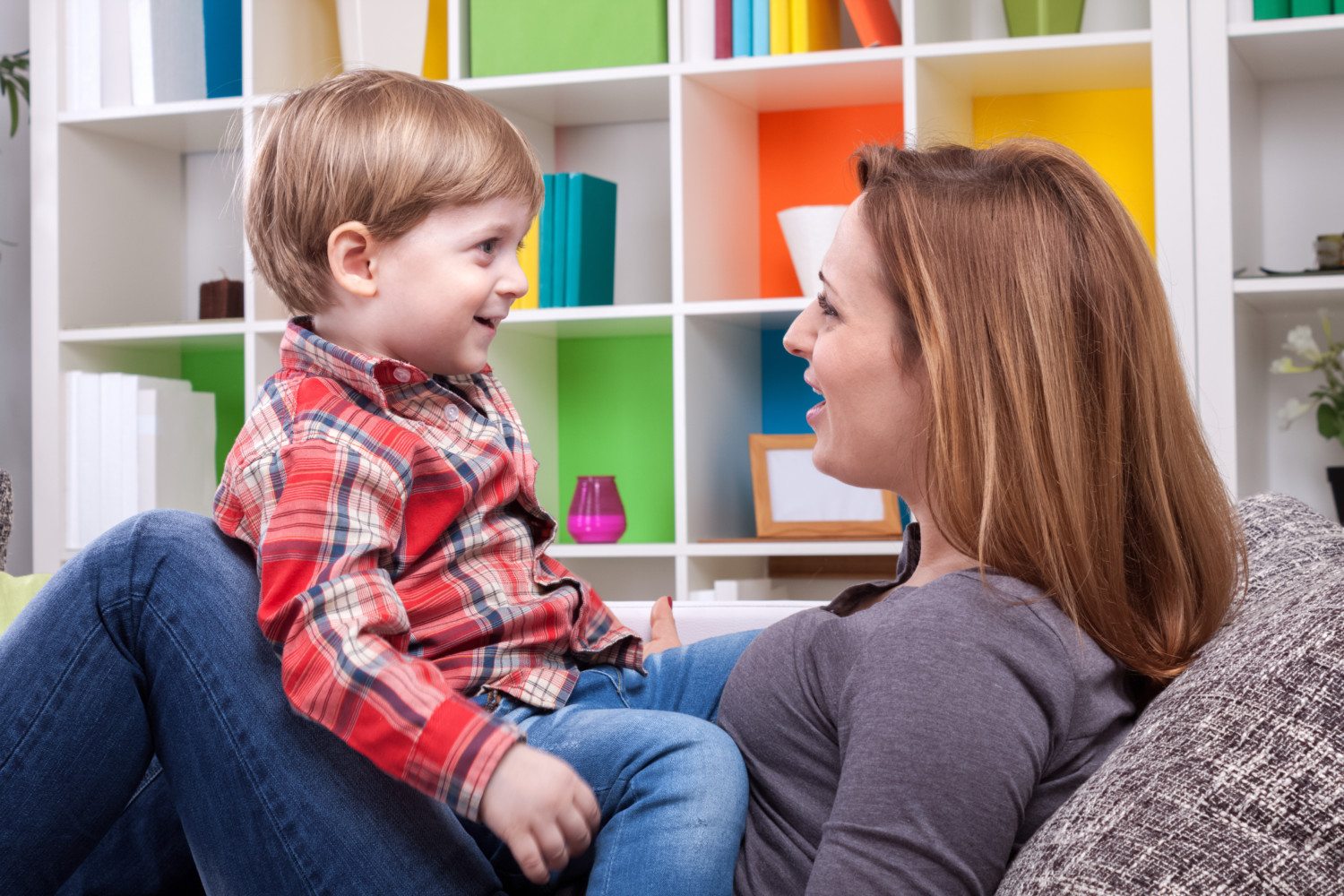The way you talk to your child can actually change their brain

As a trained journalist, my go-to conversation technique is asking questions — and lots of them. It has served me well, as I’ve chatted with people from all walks of life and listened to incredible stories. It’s hard to find someone who doesn’t like to talk about themselves or their experiences.
I use this same style with my nieces and nephews, too. Even if they’re not actually talking yet, I’ll ask tons of questions to engage and include them with the adults. And I acknowledge their coos like well-thought-out sentences. When they do learn a few words, the responses are always entertaining.
And it turns out that engaging little ones in interactive conversations has significant benefits, according to recent research from MIT.
Brain Boost
Researchers say parents who engage kids in conversation can significantly impact their children’s language and brain development.
“The important thing is not just to talk to your child, but to talk with your child,” Rachel Romeo, lead author of the paper, explained to MIT News. “It’s not just about dumping language into your child’s brain, but to actually carry on a conversation with them.”
In fact, interactive conversation allows children to practice their communication skills, including comprehension and proper responses. The research shows that simply saying words to children is not enough, and plopping them down in front of educational videos to learn more words won’t do the trick.
“The really novel thing about our paper is that it provides the first evidence that family conversation at home is associated with brain development in children. It’s almost magical how parental conversation appears to influence the biological growth of the brain,” John Gabrieli, a professor of brain and cognitive sciences and senior author of the study, told MIT News.
In the video clip below, Gabrieli and Romeo explain more about their research and why it’s significant for parents, especially those of lower socio-economic status.
Homework For Parents
So, how can you introduce a bit of this magic into your own household and boost your kids’ cognition? The researchers have a few easy suggestions.
First, you can interact with younger children by making sounds or faces back and forth. For older children, like those in the study, you can simply engage in conversation, taking turns speaking and responding to each other.
A few more questions and back-and-forth conversations can mean a major brain boost for your little ones. Plus, you’ll bond with your children in the process. It’s a win-win and you don’t need a fancy degree or any special training to reap the rewards.






